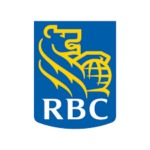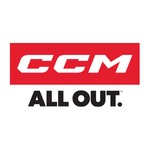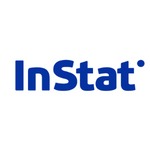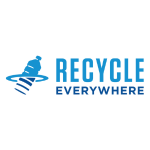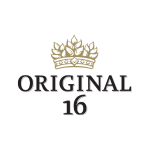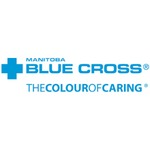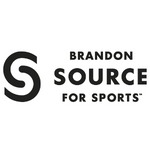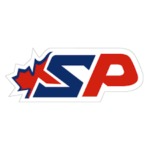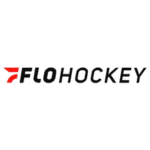The MJHL is proud to be a leader in developing talent for the WHL and NCAA. It is important for all players and parents/guardians to research potential advancement choices to make an informed decision.
Balancing the prioritization of academics, hockey development and personal well-being are key factors to consider. Ensure you understand the WHL Standard Player Agreement benefits and impact of NCAA eligibility. Meanwhile also know the incentives of NCAA scholarships along with the varying level of tuition/fees you’ll be awarded and what costs you may still incur after the value of a scholarship is applied.
Western Hockey League (WHL)
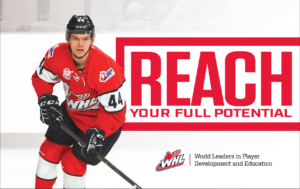 The WHL is a member of the Canadian Hockey League (CHL) whose membership is comprised of three Canadian-based major junior hockey leagues: Ontario Hockey League (OHL), Quebec Major Junior Hockey League (QMJHL) and the Western Hockey League (WHL), members and official development path of Hockey Canada.
The WHL is a member of the Canadian Hockey League (CHL) whose membership is comprised of three Canadian-based major junior hockey leagues: Ontario Hockey League (OHL), Quebec Major Junior Hockey League (QMJHL) and the Western Hockey League (WHL), members and official development path of Hockey Canada.
The WHL offers top young prospects in Western Canada and the U.S. the opportunity to reach their full potential both on and off the ice, by providing an ideal environment to develop as a hockey player while not compromising their academic goals by offering guaranteed scholarships. A player is able to attend any post-secondary or career-enhancing institution of his choice, including universities, colleges, technical institutes, trade schools, or any other institution which will help the player achieve his academic and career goals.
To become the best, a player must practice, play against, and be coached by the best. NHL quality coaching and additional practice time with a 68 game schedule; combined with world class facilities, offer the ideal environment for a player to develop.
Many players continue to use the MJHL as a formidable stepping-stone to the Western Hockey League (WHL).
NCAA Hockey
Refer to College Hockey Inc. for the most in-depth and up-to-date information regarding the many benefits, eligibility requirements, and recruiting process of NCAA Hockey.
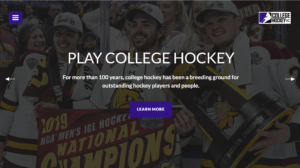
NCAA regulations require all incoming student-athletes to meet a prescribed level of academic performance while maintaining their amateur status before entering college. Those who wish to compete at the Division I or II level must be certified by the NCAA Eligibility Center (more info below), which looks at two main criteria: Academics and Amateurism.
For more than 100 years, college hockey has been a breeding ground for outstanding hockey players and people. Today college hockey players make a bigger impact in the NHL than ever before, with more than 30% of the league coming from the U.S. college ranks. Sixty schools sponsor NCAA Division I men’s college hockey, competing in six conferences and for the national championship every year at the NCAA Frozen Four. There are over eighty NCAA Division III schools that sponsor a hockey program. NCAA Division III schools do not offer athletic scholarships, but they do offer other forms of financial aid through academics.
The MJHL has a proud reputation, past and present, of producing talent for NCAA Hockey programs.
Playing in one Canadian Hockey League (WHL) exhibition or regular season game will remove NCAA eligibility.
However, there is still the opportunity for prospects to attend a WHL camp to learn more about the team, while retaining amateur status. The important thing is to know ALL the facts when making this very important decision.
Any player who wants to consider the U.S. college hockey option needs to remember a few things before signing with or attending a CHL training camp:
1. A CHL team may cover necessary expenses for you to attend a tryout for up to 48 hours (including transportation, lodging, meals, etc.). The 48-hour period begins when you arrive at the tryout location. This is a one-time allowance per team and can be used for a training camp or rookie camp.
To be safe, pay for everything when going to a WHL camp to ensure amateur status remains intact (including transportation to and from camp, hotels, meals, etc.)
2. While attending WHL camps, prospects may participate in practices and intra-squad scrimmages, BUT may not face off against players or prospects representing another WHL team, even in an exhibition game.
Playing in one exhibition game or regular season game will likely result in the player no longer being eligible for an NCAA scholarship. Pre-season and Regular season games are both considered the same in the eyes of the NCAA.
Do not play any game against players from another WHL team unless you are 100% positive you want to go the WHL route.
3. If you are drafted in the WHL in the spring and are attending camp as a 15 or 16 year old, do not rush into signing or playing a game as a 15 or 16 year old unless you are positive you want to go the WHL route. If you are unsure, maintaining your NCAA eligibility for another year will give you more time to evaluate your options and to make a well-informed decision for your future.
4. A contract with a WHL team is considered a professional contract by the NCAA and therefore jeopardizes a prospect’s eligibility.
To be safe, do not sign any agreement with a WHL team unless you are 100% positive you want to go the WHL route.
5. If a WHL team gives you a jersey or other gifts, you should be prepared to either return those items, compensate the team appropriately or donate them to charity.
To be safe, don’t accept anything from a WHL team until having signed with that team or having made the decision to go the WHL route.
NCAA prospects must meet minimum academic criteria that takes into account high school grades as well as scores on standardized tests (the SAT or ACT). Those scores are weighted on a sliding scale to determine initial eligibility. (See link to pdf at the top of the page for NCAA Sliding Scale)
The grade-point average considered by the NCAA only includes what are considered “core courses” – and all prospective students must have taken 16 of these core courses. The NCAA Eligibility Center includes important details on those requirements, plus lists of approved core courses at specific high schools or in each Canadian province. (See link to pdf at the top of the page for approved Manitoba Core Courses)
What You Need to Do:
* Register with the NCAA Eligibility Center.
* Take 16 NCAA-approved core courses in your first four years of high school; you can find a list of approved courses for the province of Manitoba or each U.S. high school at the NCAA Eligibility Center web site. (See link to pdf at the top of the page for approved Manitoba Core Courses)
* Register for and take either the SAT or the ACT. Plan to take it more than once; the NCAA will only consider your best score.
* Submit transcripts and test scores to the NCAA Eligibility Center.
* If you would like to take university classes after high school but before beginning your player career, do so as a part-time student – do not enroll full time.
Note: To play Division I Sports, you need to qualify academically. To meet the minimum requirements for Division I student, athletes enrolling in college must earn a minimum 2.300 GPA in core courses and earn a combined SAT or ACT score that matched your core-course GPA on the sliding scale to compete in your first year of college. (See link to pdf at the top of the page for NCAA Sliding Scale)
 The WHL is a member of the Canadian Hockey League (CHL) whose membership is comprised of three Canadian-based major junior hockey leagues: Ontario Hockey League (OHL), Quebec Major Junior Hockey League (QMJHL) and the Western Hockey League (WHL), members and official development path of Hockey Canada.
The WHL is a member of the Canadian Hockey League (CHL) whose membership is comprised of three Canadian-based major junior hockey leagues: Ontario Hockey League (OHL), Quebec Major Junior Hockey League (QMJHL) and the Western Hockey League (WHL), members and official development path of Hockey Canada.
















